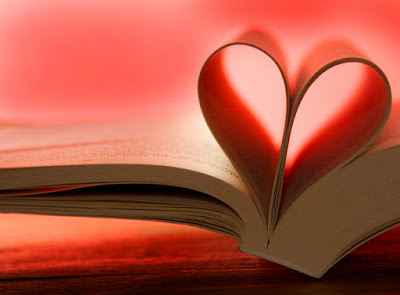It's working.
Though, you wouldn't know it from my Goodreads tally, because I so often forget to list them--even though, accountability advocate that I am--I had absolutely, positively, definitely told myself I would! Over there, I'm committed to reading 65 books this year, and each time I open the site, I'm confronted with the admonition that I'm "15 books behind"! No, no I'm not, I protest, aloud, in my empty home office.
One reason the GR tally is off is, ironically, related to the very way I'm getting more reading done: about a chapter before I finish the book I'm currently reading, I start the next. Just a few pages here and there (and yes, it feels like cheating on a trusting boyfriend!), just enough so that when I close a book, that inevitable feeling of loss and abandonment--and sometimes the silly thought that no next book could possibly ever come close--doesn't keep me from opening and starting the next book.
You know that feeling, don't you, the one that makes you melancholy, wistful, or sad to leave a beloved character or narrator behind. It can sometimes hang about for days, keeping me from starting the next book. Yes, occasionally that feeling was, is, delicious. I actually want to wallow in that dreamy world-of-the-book for a bit longer.
Already being at least a little bit inside the next book is a reliable way to keep reading, but it's also the reason I forget to record my progress. The trade-off is worth it, though. Those reading gaps, the time between books, were adding up. Let's face it, there's never going to be enough time to read, what with all the other demands on our time, and in a more practical/philosophical/mortal/morbid sense: we're all going to outlive out to-be-read pile, after all.
A bit sobering, but there you have it.
Another tiny trick that's helping: making sure the current book is on the same level of the house as I am. Really, I'm not kidding. If I remember to carry the book downstairs in the morning, then when I'm done working for the day (in my upstairs home office), it's handy while I'm waiting for dinner to cook, or relaxing on the couch or patio, and when I can't avoid commercials when watching live TV. Likewise, when I remember to bring the book back upstairs at the end of an evening, it's more likely I'll read before bed and/or in the early morning, when the husband leaves very early for work and I could sleep longer but just can't.
Seems silly, but if I have to go back up or down those 11 stairs well, instead of reading more of the current book, I may grab my phone and scroll for a mindless few minutes that turns into an hour that sucks the life out of reading time.
Right now, I'm making my way through a somewhat specialized section of the to-be-read pile (having added about six more in the books-by-MFA-friends category, including Stolen Beauty). Next, I'm eyeing novels that, for various reasons logical and/or esoteric, have been tempting me from the master to-be-read pile: Lincoln in the Bardo, The Mare, The Great House, The Cottonmouths (won in a giveaway over at The Debutante Ball). Oh but maybe first, or in-between, the memoirs Hunger, Year of the Horse, and Guesswork. Or...
That's it for today. I have another 30 minutes before I need to get ready for a workshop. What shall I do?
Image - top, Flickr/CreativeCommons-Tim Geer















